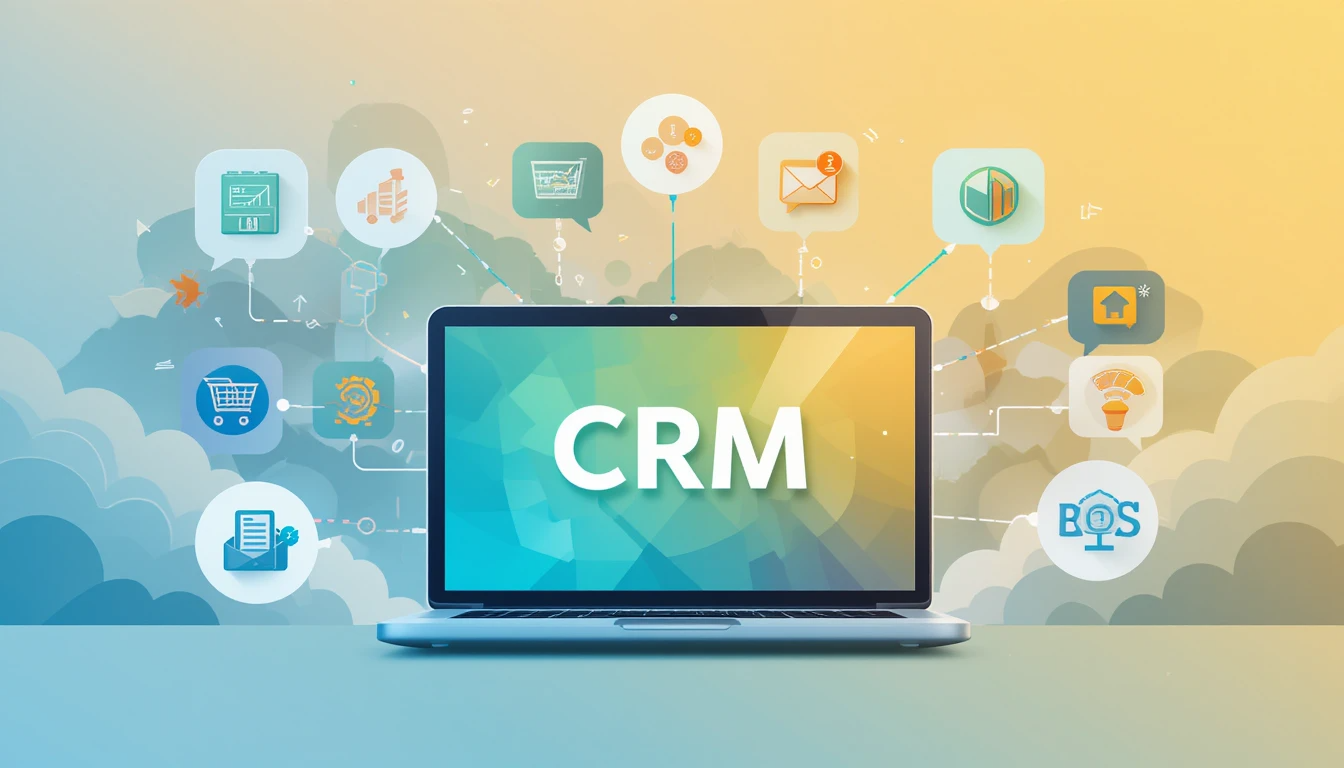For small businesses, maintaining strong relationships with customers is crucial for growth and success. As your business grows, so do the demands of managing customer interactions, tracking leads, and ensuring timely follow-ups. This is where Customer Relationship Management (CRM) software becomes invaluable.
CRM software helps businesses streamline communication, improve customer service, and ultimately drive sales. Let’s explore why CRM software is an essential tool for small business success.
Organizing Customer Information
A CRM system centralizes all customer data in one location, making it easily accessible. Whether it’s contact details, past interactions, purchase history, or preferences, CRM software ensures that you have a 360-degree view of each customer.
- 87% of CRM users report improved access to customer data, which helps businesses provide better service and build stronger relationships. (Source: Salesforce)
Instead of sifting through spreadsheets, emails, or sticky notes, a CRM system gives you an organized and unified database, saving you time and reducing errors.
Improving Customer Relationships and Retention
Building lasting relationships is vital to any business, and CRM software helps foster these connections by tracking communication history and personalizing customer interactions.
With CRM, businesses can send follow-up emails, make personalized recommendations, and remember important dates like birthdays or anniversaries, making customers feel valued.
- CRM systems can increase customer retention by 27%. (Source: Capterra)
A small business that consistently delivers personalized experiences and anticipates customer needs is more likely to retain loyal clients and receive repeat business.
Boosting Sales and Lead Management
CRM software is a powerful tool for tracking leads through the sales funnel. With CRM, you can manage prospects, follow up on opportunities, and track the progress of each lead. This ensures that no lead falls through the cracks, and your sales team can prioritize their efforts based on lead activity and engagement.
Key benefits:
- CRM provides a clear picture of each lead’s journey, from initial contact to conversion.
- Automates follow-ups and task reminders, ensuring timely communication.
- CRM systems can increase sales by up to 29%. (Source: Nucleus Research)
By streamlining sales processes and improving lead nurturing, small businesses can close deals faster and more effectively.
Enhanced Customer Support and Service

Providing excellent customer service is a cornerstone of any successful business. With CRM, you can track customer inquiries, issues, and requests in one system, ensuring your team is always on top of support needs.
A CRM system enables:
- Tracking of customer service tickets and issues.
- Providing detailed case histories for service reps to address customer concerns quickly.
- Proactive customer care based on previous interactions.
This means customers receive timely and efficient support, which enhances customer satisfaction and loyalty.
Marketing Automation
Marketing automation is another significant benefit of CRM software. By integrating CRM with your marketing tools, you can automate email campaigns, social media posts, and promotional offers based on customer behavior and preferences.
For instance, CRMs allow businesses to:
- Automatically send personalized email follow-ups after a purchase.
- Target customers with special offers based on their past interactions.
- Segment customers into different groups for more focused marketing efforts.
- CRM users see a 41% increase in lead generation. (Source: Salesforce)
By automating marketing tasks, small businesses can ensure they stay top-of-mind without overwhelming their teams.
Streamlining Business Operations
Small businesses often have limited resources, so efficiency is key. CRM software allows businesses to automate many routine tasks such as data entry, follow-ups, and reporting. This leads to more streamlined workflows, less administrative burden, and more focus on core business activities.
CRM systems can help with:
- Automated scheduling of meetings or appointments.
- Setting reminders for key tasks, and ensuring deadlines are met.
- Creating reports on sales performance, customer trends, and other vital metrics.
- CRM systems can save up to 8 hours a week per employee in administrative tasks. (Source: HubSpot)
By reducing manual work, employees can focus on high-value tasks that contribute directly to growth.
Data-Driven Decision Making
CRMs provide valuable insights into customer behavior, sales trends, and overall business performance. By analyzing this data, small businesses can make informed decisions about sales strategies, marketing campaigns, and customer engagement efforts.
- 91% of successful businesses use customer data to drive decision-making and innovation. (Source: PwC)
With CRM software, businesses can:
- Identify top-performing products or services.
- Track which sales tactics are most effective.
- Discover patterns in customer preferences that can inform future business decisions.
Having this data at your fingertips makes it easier to pivot strategies and stay aligned with customer needs.
Scalability for Growth

As your business grows, the need for effective customer management becomes even more important. CRM software is scalable, meaning you can adapt the system as your business expands. Whether you’re adding new team members, launching new products, or expanding into new markets, CRM software can grow with you.
- CRM systems support 50% of businesses’ growth plans. (Source: McKinsey)
Investing in CRM early on ensures that as your customer base expands, you’ll be able to maintain personalized service and consistent communication without feeling overwhelmed.
Collaboration Among Teams
CRM software helps break down silos within a business. Sales, marketing, and customer service teams can all access the same customer data, ensuring everyone is on the same page and working toward the same goals.
How CRM fosters collaboration:
- Shared access to customer profiles, history, and communication records.
- Cross-team collaboration on lead management and customer service.
- Transparent sales and marketing strategies that are aligned across departments.
With CRM, communication flows more freely between teams, leading to a more coordinated and efficient approach to customer management.
Gaining a Competitive Advantage
In today’s competitive market, small businesses need every advantage they can get. CRM software provides that edge by enabling you to deliver a higher level of service, better targeting, and more efficient operations.
- Small businesses with CRM systems grow their revenue up to 41% faster than those without. (Source: Nucleus Research)
By leveraging CRM tools, you can gain a deeper understanding of your customers, anticipate their needs, and offer a more personalized experience than your competitors.
CRM software isn’t just a luxury for large enterprises; it’s a game-changer for small businesses looking to improve customer relationships, streamline operations, and drive growth.
With the ability to organize customer data, automate marketing efforts, enhance sales, and improve customer service, CRM software offers a comprehensive solution that addresses the unique challenges small businesses face. By investing in CRM software, small businesses can not only improve efficiency but also create a customer-centric culture that drives long-term success.
